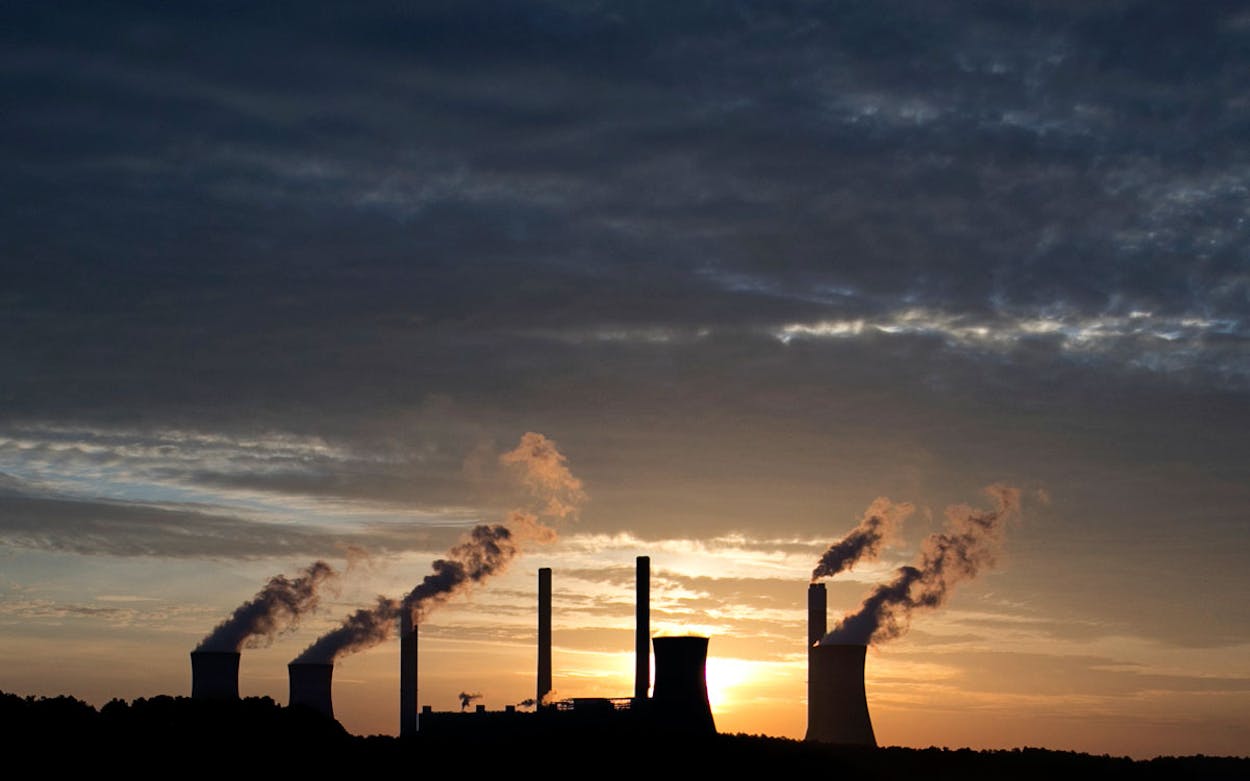Coal Plants Closing
The Department of Energy wants to ensure grid reliability by requiring energy customers to pay to keep under-utilized coal plants open. That plan has proven controversial, and moves like the one announced this week by Dallas-based Vistra Energy helps explain why: the company intends to close three of its large coal plants in early 2018, because they’re all losing money.
The question is whether the state will allow that to happen. Shuttering the Monticello coal plant in Northeast Texas, which provides 1,800 megawatts of power, has already been approved—but questions remain about two additional 1,200 megwatt plants that the company would like to shut down.
According to the Houston Chronicle, ERCOT doesn’t believe that shuttering these three plants will affect grid reliability in the next year—but there are questions about the future, as renewable facilities continue to come online. Those facilities are opening quickly, though, with another 1,400 megawatts of power expected by early 2018.
Railroad Commissioner Applauds Ending Subsidies For Electric Cars
On Thursday, Representative Kevin Brady, who represents Houston in the U.S. House of Representatives, introduced a bill to end tax incentives for people who buy electric cars as part of the GOP tax bill. The $7,500 credit has helped spur the adoption of electric vehicles around the country—not just the high-end Teslas, but also cars like the Chevy Bolt and the Nissan Leaf.
Responding to the proposal, Texas Railroad Commissioner Wayne Christian praised the plan: “These Obama-era subsidies circumvent the free-market by picking winners and losers, while doing virtually nothing to tangibly protect the environment,” Christian said in a press release. “I applaud Congressman Brady and the Texas Delegation for considering my letter and including the removal of this boondoggle as part of the tax-reform package.”
Christian’s argument about picking winners and losers doesn’t address the tax rate for gasoline, of course—where the $0.184/gallon rate hasn’t increased since 1993, creating a sort-of tax credit for consumers at the pump. And the impact of ending the subsidy could be substantial: Bloomberg notes that in Georgia, after the statewide tax credit for electric cars was cut in 2015, sales dropped from 1,400 electric cars a month to fewer than 100. A similar impact could play out nationally.
Fracking and Air Quality
It’s worth noting this Houston Chronicle column by Texas A&M atmospheric scientist Gunnar W. Schade on the impact of fracking on air quality in the U.S. Schade notes that, while air pollution had steadily decreased as a result of environmental regulations from the Nixon-era formation of the EPA for decades, emissions from fracking are on the increase. Schade describes trends involving hydrocarbons like ozone and benzene:
[T]he increase of hydrocarbon emissions has also led to the resurgence of an air toxic thought to be a story of the past in the U.S.: benzene. Unlike ozone, which is widely monitored, benzene is not. However, since it is a known carcinogen, it has long been on the radar of regulatory agencies.
Much of the conversation around the environmental impact of fracking has centered on water, ground contamination, and earthquakes. It’s worth considering Schade’s perspective here as well.
West Texas Battery Business
In addition to being home to crude oil, natural gas, and wind, West Texas aims to get on the energy map in a more unlikely way: Namely, with batteries. As MRT notes:
Texas Waves, located on E.ON’s Pyron and Inadale wind farms, consists of two 9.9 megawatt short-duration energy storage projects using lithium-ion battery technology. Texas Waves is designed to provide ancillary services to the Electric Reliability Council of Texas market in order to respond to shifts in power demand quickly and increasing reliability and efficiency. The projects will be E.ON’s second and third grid-connected lithium-ion battery systems installed in North America and are expected to be online by the end of the year.
E.ON, a German company with energy investments in the region, held a Q&A with the Midland-based outlet to discuss the impact of what they’re testing, which could be significant: one of the reasons that the DoE is pushing consumer-funded coal subsidies is to ensure that renewable sources don’t shut down in the event that there’s not enough wind, or sunshine, to power those sources when demand is high. Energy storage, in the form of batteries, is a big part of maintaining grid reliability going forward, and can help prevent blackouts.
- More About:
- Energy








